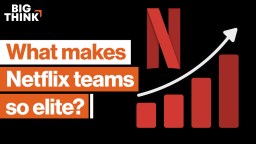microsoft
Erin Meyer explains the keeper test and how it can make or break a team.
▸
6 min
—
with
Maybe it’s time to show this report your employer?
The power to predict the next revolution keeps companies on top.
▸
3 min
—
with
Hackers look for open doors. If your personal data isn’t protected, it’s that much easier to compromise your identity.
▸
3 min
—
with
Half of Americans do not trust the federal government or social media sites to protect their data.
And you thought red-light cameras were bad…
The $480 million contract could lead the company to make more than 100,000 augmented reality headsets for the military.
Anyone can develop a great eye for design, according to the designer who led the team that created the iPod.
He created Windows and made billions of dollars. But that wouldn’t have happened if it weren’t for a few small things in his early life.
Elon Musk and many top CEOs condemned President Trump’s decision to pull out of the Paris Agreement on climate change.









